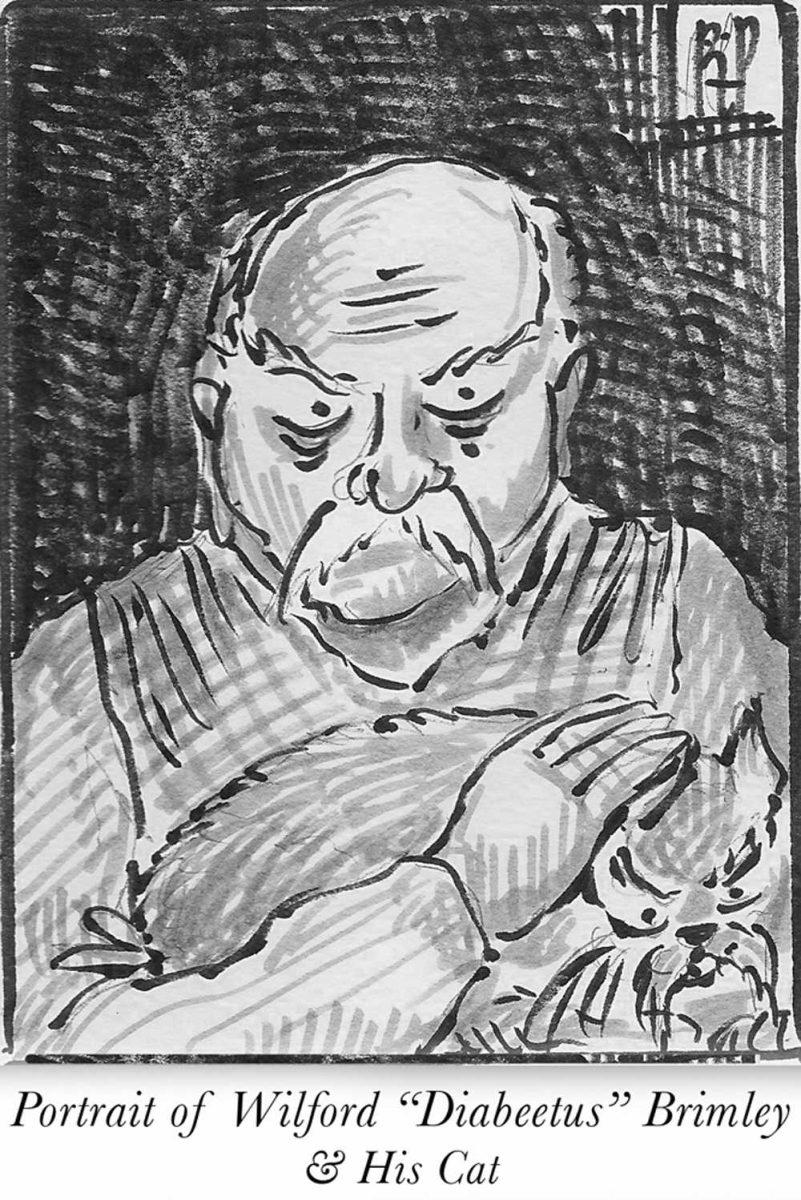A new study conducted by the Drexel University’s School of Public Health has churned out an alarming conclusion: Diabetes is highest in developed nations.
At this point, you may be saying, “Duh,” or, “Why are you telling me this? I don’t even know you.”
Well, imagined reader, as you’re aware, we’re a developed nation. Not just any developed nation, though — as a result of our successes and sedentary lifestyles, we’ve become the second fattest one in the developed world.
Even worse, according to the Center for Disease Control and Prevention, Louisiana was the fifth-most obese state in the country in 2011.
The Drexel study surmised that “adverse body weight” frequently went hand-in-hand with increased risk for diabetes. This link becomes evident when you consider that in 2009 Louisiana led the nation in diabetes-related deaths.
Deaths. It’s easy to forget people die for this when you’re watching diabetes-care commercials about older women pricking their fingers or Wilford Brimley trying to speak through his gigantic mustache.
It happens all the time, though. In 2008, the World Health Organization found diabetes was the eighth highest cause of death in high-income countries and the ninth highest in the entire world.
What are the most common causes of death in low-income nations? Lower respiratory and diarrheal diseases ranked first and second, respectively, while eighth place was taken by prematurity and low birth weight. Finally, something difficult to digest.
This isn’t meant to admonish anyone, though. Food is awesome. In fact, this Thanksgiving I’ll be partaking in my favorite and least favorite holiday traditions: Nearly eating myself to death and the subsequent shame-hangover, respectively.
I’ll eventually regain a clear conscience, too, because this was never about comparing ourselves to other countries.
A quick pass through the Internet will reveal tiny island nations like Nauru, where 95 percent of the population is obese. Then there’s the world’s fattest developed country, Qatar. Its soaring rates of obesity and diabetes can be attributed to the institutionalized, unfathomable amount of eating and cousin-love we thought was trademarked by stereotypes of the American South.
Don’t think too much about them. Instead, consider what makes us how we are. With all the facts in front of us, why wouldn’t we change?
Why would we even want to change when it’s so easy to feel good about ourselves? In seconds, I surfed the Web and found more obese countries to make myself feel better about my health.
If I feel like eating a cheeseburger so pumped full of chemicals it barely ages, I don’t even have to get out of my car.
By the way, the spread of the fast food we love is partially to blame for the obesity in Nauru and Qatar. It’s also worth noting that obesity and poverty get cozy in the South precisely because those unhealthy, uncostly foods are so easily obtained.
In short, eating whatever we want and making ourselves feel better later is comfortable. We like to eat and food is plentiful — especially in Louisiana where it’s engrained in our culture and traditions.
But I wouldn’t suggest giving up crawfish boils or missing the once-a-year opportunity to binge on Thanksgiving. I wouldn’t even say you absolutely must make a change in your diet and exercise.
First, obesity is one of the largest causes of diabetes. Diabetes does not, however, only affect the overweight. Genetics play a role, too. Second, we’re Americans. If you know the risks, enjoy what you’re doing and it’s not illegal, you always have the right to tell everyone else to go tell it on the mountain.
If, on the other hand, the numbers worry you, changing your diet or becoming more active isn’t difficult. Baby steps help and don’t involve completely reworking your life. Just ask your doctor, phone a friend, read a book or look up suggestions on the Internet. Food isn’t the only thing at our fingertips.





